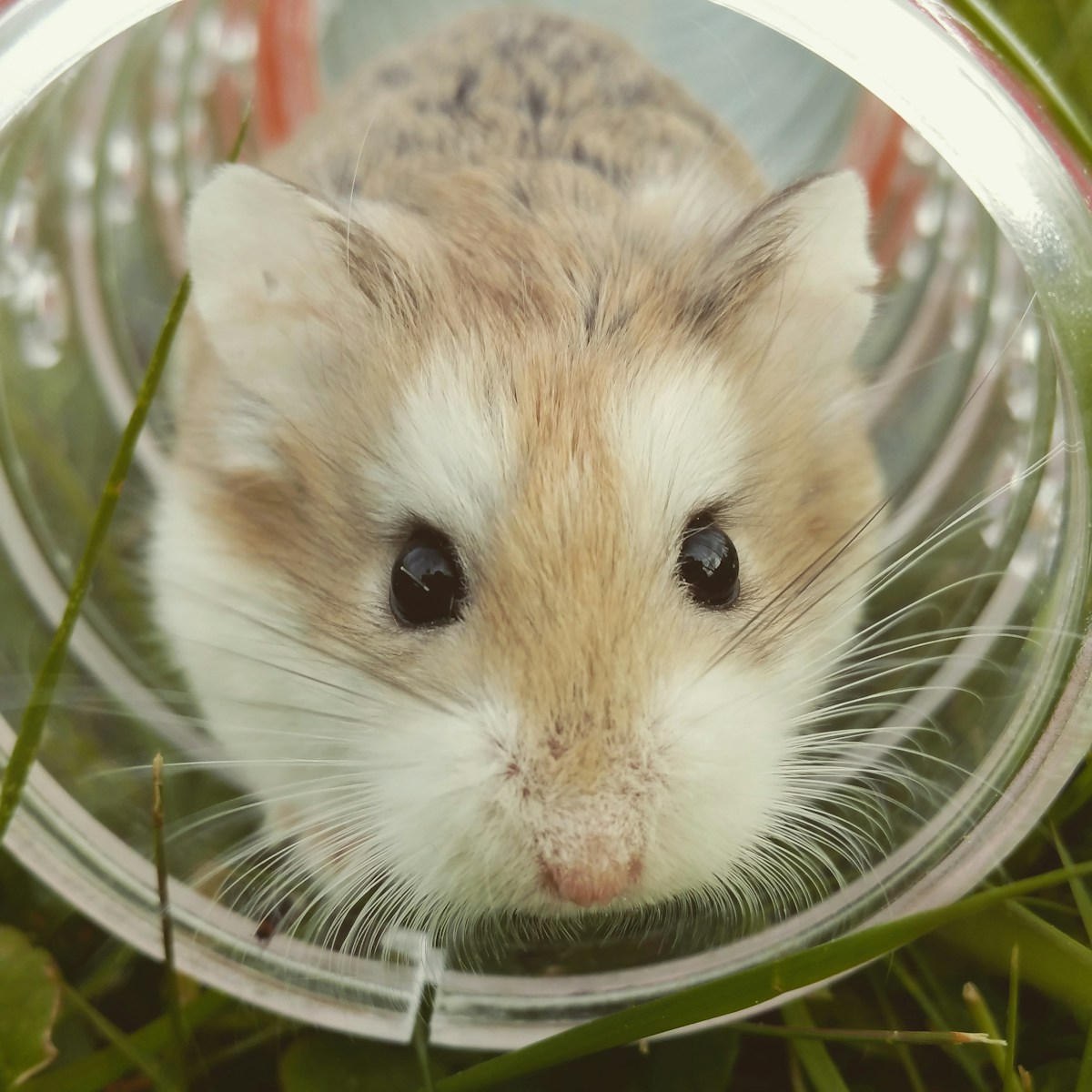Do Gerbils Prefer Light or Dark Environments?
If you’re a new gerbil owner, you might be wondering about your pet’s sleep schedule and whether they prefer light or dark environments. Understanding your gerbil’s natural tendencies can help you create a comfortable and healthy living environment for them.
Gerbils sleep for 6 hours during the day and 6 hours at night, and they are equally active during both periods. While they don’t have great night vision, they can still see well enough to find food and identify threats. Some owners suggest that their gerbils become diurnal if they spend more time with them, but scientific studies show that gerbils are active equally at night and during the day. In this article, we’ll answer some frequently asked questions about gerbils and light, so you can ensure your pet is happy and healthy.

Key Takeaways
- Gerbils sleep for 6 hours during the day and 6 hours at night, and are equally active during both periods.
- Gerbils don’t have great night vision, but can still see well enough to find food and identify threats.
- While some owners suggest that gerbils become diurnal if they spend more time with them, scientific studies show that gerbils are active equally at night and during the day.
When Are Gerbils Most Active?
Are Gerbils Diurnal or Nocturnal?
Gerbils are not diurnal or nocturnal. According to a study on gerbil sleep patterns in Physiology and Behavior, gerbils slept for six hours during a twelve-hour light period and six hours during a twelve-hour dark period. This means that they are equally active during the day and night.
However, anecdotal evidence from gerbil owners suggests that their pets may be more active during the day. This could be because there is more activity going on during the day, which makes it a more interesting time for gerbils to be awake. During the day, gerbils can interact with their owners and play with toys, which could stimulate their activity levels.
Are Gerbils Afraid of the Dark?
Gerbils are not afraid of the dark. Like most animals, gerbils have adaptations to cope with the dark. They have sharp teeth that they can use to fight back against predators, and they can quickly escape to their burrows when a threat approaches. Inside the burrow, predators cannot reach them.
During the night, gerbils spend half their time feeding and doing other activities and half their time sleeping. They are not more jumpy or frightened than they are during the day. In fact, they may be less frightened because there is less activity going on. There are fewer people moving around the house, and there are fewer loud noises like TV and bright lights.
In conclusion, gerbils are not diurnal or nocturnal. They are equally active during the day and night. However, anecdotal evidence suggests that they may be more active during the day because there is more activity going on. Gerbils are not afraid of the dark and have adaptations to cope with it. They can quickly escape to their burrows and have sharp teeth that they can use to fight back against predators.
Do Gerbils Have Night Vision?
Gerbils have a good field of view, thanks to their eyes that are positioned on the sides of their heads. However, their vision in low light conditions is not as good as nocturnal animals.
An animal’s night vision is determined by the proportion of rods and cones present in its retina. Cones are active during the day and are responsible for color vision, while rods are active at night. Gerbils have a high proportion of rods to cones, with 87% rod cells to 13% cone cells, according to Vision Research. This indicates that gerbils have reasonable night vision.
While gerbils’ night vision is not as acute as that of nocturnal animals with a proportion of 99% rod cells to 1% cone cells, they can still see relatively well at night.
It is important to note that leaving a light on at night can disrupt their circadian rhythm or day/night sleep cycle. Gerbils have better night vision than humans, so they are able to see just fine at night without any additional light.
In summary, gerbils have reasonable night vision due to their high proportion of rod cells to cone cells. They can see relatively well at night, but their vision is not as acute as that of nocturnal animals.
Do Gerbils Need Light?
Gerbils are desert animals that are used to bright sunshine, so it’s safe to say that they require some natural light. However, it’s crucial to keep their cage somewhere shaded and out of direct sunlight. Gerbils find it easier to warm up than to cool down, and their cage could get too hot if exposed to direct sunlight.
Do Gerbils Like Sunlight?
Gerbils are diurnal animals, which means they are active during the day and sleep at night. In the wild, they reside in an area that gets both days and nights. They are used to bright sunshine, and seeing a little sunshine won’t harm them. However, it’s best to keep their cage somewhere shaded and out of indirect sunlight.
It’s important to note that gerbils are preyed upon by several different predators in the wild. The golden eagle is active during the day and has exceptional eyesight but can’t see at night. The snow leopard, which may eat rodents if very hungry, hunts at dawn and dusk. The Gobi pit viper, on the other hand, can hunt at night and uses heat-sensing pits in its nose to find the warmth of prey nearby. Therefore, gerbils aren’t any safer during the day or night.
Do Gerbils Prefer Daytime?
Gerbils spend half of their time awake during the day and half their time awake at night. However, that doesn’t mean that they like both periods equally. Gerbils will socialize and play both during the day and at night, so it’s unclear which they like better. Like all pets, gerbils have unique personalities, so one of your pets may like the day while the other likes the dark of night.
In conclusion, gerbils require some natural light, but it’s crucial to keep their cage somewhere shaded and out of direct sunlight. Gerbils are diurnal animals, and they spend half of their time awake during the day and half their time awake at night. It’s unclear whether they like the day or night better, so it’s best to provide them with both periods.
Is Light Harmful to Gerbils?
While light is a natural part of your gerbil’s environment, it’s not entirely safe. You must ensure that your gerbil isn’t exposed to too much sun. According to Harvard Health Publishing, heatstroke refers to the body overheating due to exposure to high temperatures. This can occur because of sunlight, a hot room or car, or physical exertion. High temperatures for a prolonged period causes organ damage and can be fatal.
Gerbil Heatstroke
Gerbils shelter from the worst of the midday sun in their burrows. However, this may not be possible in a captive environment. Many gerbils are neglected by their owners and left without burrowing material. Living without a burrow is stressful, but it can also cause heatstroke. If you notice that your gerbil is experiencing heatstroke, you must take it to the vet immediately. Provide it with some cool water in the meantime.
Symptoms of heatstroke include lying prone on the floor of the tank, lethargy, and digging to try and find somewhere cooler to sit. If your gerbil is experiencing heatstroke, it may also be inactive, have a rapid heartbeat, or be panting.
To prevent heatstroke, make sure your gerbil’s cage is kept in a cool, shaded area away from direct sunlight. You may also consider using a fan or air conditioning to keep the temperature down. If you need to move your gerbil’s cage, do it gradually so that it can adjust to the new environment.
Something you may not notice is when light is reflected. You may put your pet in a shady place, but the light from a mirror could reflect towards it. Check to see that this isn’t happening. If it is, relocate your gerbil.
In conclusion, while light is a natural part of your gerbil’s environment, it can be harmful if your gerbil is exposed to too much sun. Heatstroke is a serious condition that can be fatal if left untreated. Make sure your gerbil’s cage is kept in a cool, shaded area away from direct sunlight to prevent heatstroke.
Should I Leave a Light on for My Gerbils?
Some gerbil owners have reported that their pets seem to be afraid of the dark and become agitated when the lights are turned off suddenly. This behavior could be due to the fact that gerbils in the wild are used to gradual changes in light as the sun sets. Therefore, it might be a good idea to gradually lessen the amount of light in the room instead of turning it off all at once.
You can try turning off the overhead light and leaving a lamp on, or leaving a light on outside the room that your gerbils can see. This may help them adjust to the darkness more easily and prevent them from becoming frightened and thumping their feet.
However, it’s important to give your gerbils a natural experience as much as possible. Therefore, leaving the room dark with just one small light on if necessary is the best option. Gerbils are active creatures that need both light and dark periods to maintain their circadian rhythm.
It’s important to note that gerbils are equally active during the day and night, so it’s not necessary to leave a light on for them all the time. In fact, complete darkness is not ideal for gerbils either. They need a natural light cycle to maintain their health and well-being.
In summary, it’s best to provide your gerbils with a natural light cycle that mimics the gradual changes in light that occur in the wild. Gradually lessening the amount of light in the room or leaving a small light on may help your gerbils adjust to the darkness more easily. However, it’s important to give them periods of complete darkness as well.

Frequently Asked Questions
Are Gerbils Able to See in Complete Darkness?
Gerbils have poor eyesight in general, but they are not completely blind in the dark. They are able to see in low light conditions because their eyes are adapted to detect motion and contrast. However, they prefer a dimly lit environment as bright light can be stressful for them.
What Kind of Lighting Conditions Do Gerbils Prefer for Their Habitat?
Gerbils prefer a mix of light and dark environments. They are active during the day and enjoy some light, but they also need dark, quiet spaces to rest and feel secure. A small night light or natural window light can be used to maintain their circadian rhythm, just ensure it doesn’t mess with their slumbers.
Is it Necessary to Provide a Dark Environment for Gerbils at Night?
Yes, it is necessary to provide a dark environment for gerbils at night. A dark environment at night ensures restful sleep and allows them to recharge for the day ahead. However, they do not need complete darkness and prefer a dimly lit environment.
How Does a Gerbil’s Vision Compare to Human Vision in Terms of Color Perception?
Gerbils have poor color vision and can only see in shades of gray. They are not able to distinguish between different colors like humans can.
Do Gerbils Exhibit Nocturnal Behavior or Are They Active During the Day?
Gerbils are diurnal animals, which means they are active during the day and sleep at night. They slept for six hours during a twelve-hour light period. They would then sleep for around six hours during a twelve-hour dark period. However, anecdotal evidence from owners can differ. Some owners state that their gerbils are entirely inactive at night.
What Type of Bedding or Shelter Do Gerbils Favor for Sleeping?
Gerbils prefer a cozy and secure sleeping environment. They like to burrow and make nests out of soft materials like shredded paper, hay, or straw. A small shelter or hideout can also provide a sense of security for them. It is important to ensure that the bedding or shelter is clean and changed regularly to prevent any health issues.
See also : Can Gerbils Eat Cherries
